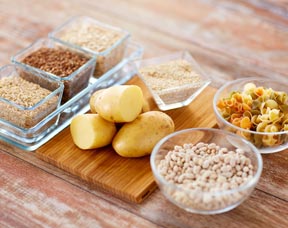You may want to reconsider drinking that soda. According to a new study conducted by the American Society for Nutrition, those consuming large quantities of processed carbohydrates (snacks and sweets) and sugary drinks may face an increased risk of breast and prostate cancers. Although the new study suggests a connection, researchers said during their annual meeting in San Diego, that the study doesn’t necessarily prove that “bad” carbs directly cause cancer. However given that breast and prostate cancers are two of the most common cancers in the United States, the connection gives more of a reason for people to cut processed foods from their diets, said lead researcher Nour Makarem.
Researchers followed the dietary habits of 3,200 U.S. adults over the course of the 20 year study. At that time, 565 individuals had been diagnosed with cancer. The results demonstrated that women who consumed healthy carbs such as fruits and whole grains were about 67 percent less likely to have breast cancer, compared to women who consumed refined carbohydrates such as white bread and baked goods.
When it came to prostate cancer risk, the findings showed that men who regularly drank sugary drinks were more than three times as likely to develop the disease versus men who avoided those drinks. That doesn’t prove sweet drinks directly contribute to prostate cancer, Makarem acknowledged. Still, she said, many studies have implicated the beverages in the risks of obesity and type 2 diabetes — so there are other reasons to cut back on consumption.
The American Beverage Association took issue with the findings stating:“The authors of this study abstract acknowledge their findings do not show that beverages cause any disease,” the group said in a statement. “Moreover, the study was limited to one demographic group that is not reflective of the population of the United States.” (Most of the study participants were caucasian.)
The beverage association also said that the American Cancer Society cites multiple potential risk factors for breast, prostate and colon cancer, so singling out diet is difficult. The group also said that because the study hasn’t been published in a peer-reviewed journal, “very few study details are available” and it’s therefore made it difficult to draw firm conclusions.
Sugary drinks weren’t the only dietary factor that mattered, though, according to the researchers. Prostate cancer risk was also heightened among men whose diets were generally high in “glycemic load” — which, Makarem said, basically means they ate a lot of refined carbs. The study also implicated “processed lunch foods,” including pizza, deli meats and burgers. Men who ate those foods four or more times a week were twice as likely to develop prostate cancer, compared to men who had them no more than once a week, the researchers found.
According to Marji McCullough, strategic director of nutritional epidemiology for the American Cancer Society, it’s hard to know whether certain foods, per se, contribute to breast or prostate cancers — or whether, for example, it’s overall calorie intake and weight gain that are the true culprits. The bottom line, Makarem said, is that whole, “high-quality” foods are a generally healthier choice than processed ones.


